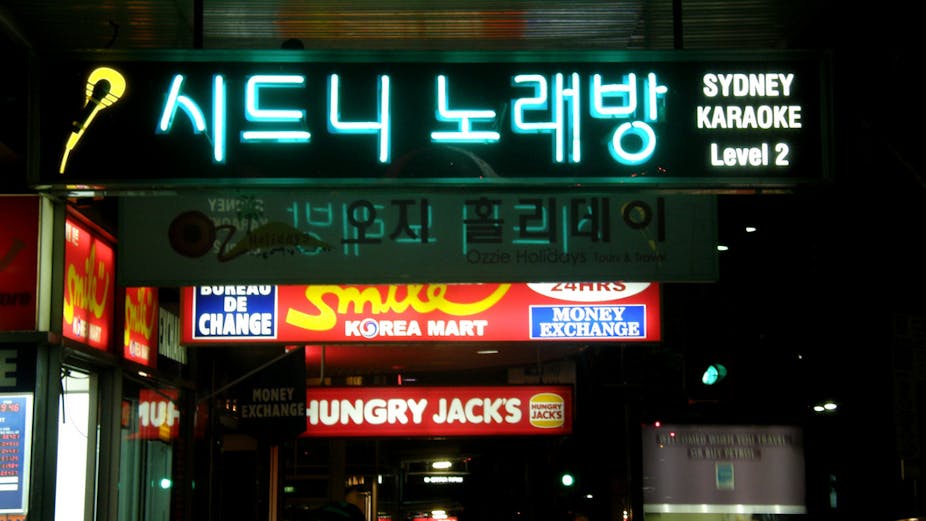Koreans are Sydney’s most entrepreneurial ethnic group, with the city’s culture and economy standing to benefit if it brands its bustling centres as Little Koreas.
The proposal to brand and promote the Korean equivalents of Chinatown in suburbs including Strathfield, Eastwood, Campsie and the CBD comes from the University of Technology Sydney’s Business School.
UTS’ Professor Jock Collins and Dr Joon Shin have made the recommendation in their report, Korean Immigrant Entrepreneurs in the Sydney Restaurant Industry, to be launched on Monday.
Professor Collins said that branding the precincts could boost the economy and enrich Sydney’s cultural mix - a city where 60% of citizens are first or second generation immigrants - and it should become council policy.
“If you look at the other ethnic precincts like Chinatown and Little Italy and Cabramatta [which has a large Vietnamese community], then what’s required is that the local councils make some investment in what you might call cultural iconography - signage, street design, streetscape, and also naming and marketing,” Professor Collins said.
“That can lead to things like festivals and other cultural events, and that facilitates local, national and international tourism,” he said.

People seeking out cosmopolitan dining would likely be familiar with other cuisines such as Chinese and Japanese, but Korean less so - making areas with concentrations of restaurants ripe for a big growth in business, Professor Collins said.
As to why Koreans have risen to become Sydney’s most entrepreneurial ethnic group, Professor Collins said that this was common to the Korean diaspora around the world and a number of factors were at play.
“There’s a strong drive [to succeed in business], and maybe the labour market’s not very responsive to Koreans with language difficulties and recognition of qualifications. Often it’s a result of what we call blocked mobility. In other words, because they see the opportunity for paid employment maybe aren’t as good as they thought they were, they see small business as an alternative that might be better paid and might give them better control over their lives,” Professor Collins said.
Australia’s Korean population has grown tenfold in 25 years, and now numbers almost 60,000 (the greatest concentration of which are in Sydney), making it the sixth largest outside Korea of any in the world, according to the report. More than double that number of Koreans are in Australia when students, working-holiday makers, and tourists are counted, the report shows.
The Korean immigrant population has twice the rate of entrepreneurship of Australians, and lest it be seen as an Asian characteristic, Professor Collins said that immigrants from different Asian countries varied widely with Koreans performing highly.
“If you look at rates of entrepreneurship across immigrant groups from Asia they vary. For example, Chinese have no higher rates than Australians in terms of entrepreneurship; some groups like the Indians are much less and then some groups like the Koreans much more - it varies considerably,” Professor Collins said.
The often Christian Koreans benefited from attendance at church - not necessarily from a religious drive to be industrious, but from the networking opportunities. “The church is an important social network where people meet and connect … those connections are then very useful for business, whether its finding suppliers or gaining people for employment, or other business activities - it’s a facilitator for social connectedness amongst the Korean immigrant community in Australia,” Professor Collins said.
The study looked at the restaurant industry, but Koreans were also succeeding in other concerns including the cleaning industry, the building industry, tilers, gyp-rockers, and some sections of the engineering industry, according to Professor Collins.
Policy proposals in the report including relaxing immigration restrictions to make it easier for restaurant owners to bring in Korean chefs.

